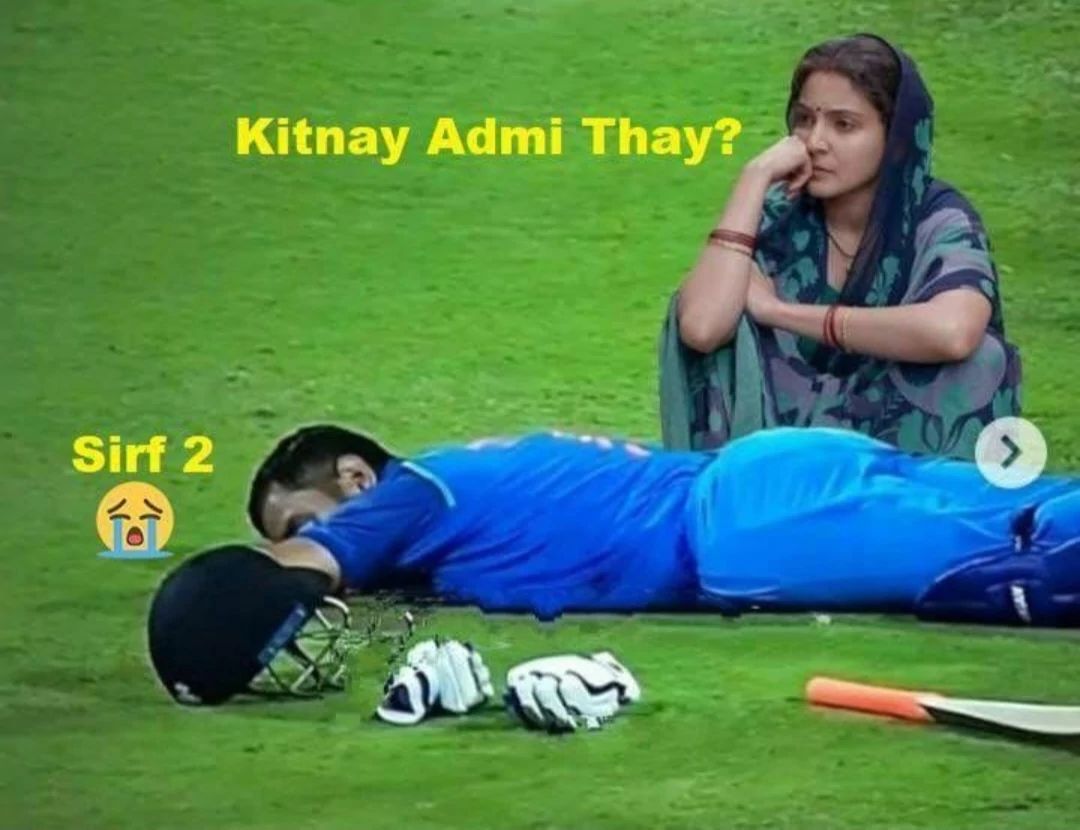- 13
- 36
Marriage is highly revered in India, so it's notable that men are marrying later, said sociologist and demographer Alaka Malwade Basu, and not because they're choosing to live it up as bachelors before settling down.
"I have been haunted by the sight of groups of young(ish) men hanging around in street corners across the world, but especially in the towns and cities of India, during my frequent trips there," said Basu, former professor of global development and currently a visiting scholar in sociology in the College of Arts and Sciences.
Basu and co-author Sneha Kumar of the University of Texas, Austin, analyzed data from the Indian National Family Health Survey (NFHS), finding that economic changes including unemployment are forcing adaptations in traditional marriage practices -- making men wait longer and sometimes pay to tie the knot -- but not enough for a modernizing overhaul to this deeply traditional institution.
Although more unmarried men could stir up political trouble, she said, women may benefit in the long run, becoming more educated if they are marrying later.
The study, "Bride Price, Dowry, and Young Men With Time to Kill: A Commentary on Men's Marriage Postponement in India," published in the November 2022 issue of Population Studies: A Journal of Demography.
Unemployment and delayed marriage are connected in many parts of the world, Basu said, but the connection has special meaning in India, where, traditionally, men don't need money to get married and establish a family.
"A still-popular joint family system means that sons do not have to leave home and establish an independent life upon marriage, and marriage expenses are borne almost entirely by the bride's family in most parts of the country," Basu said. "Yet there is this connection between male unemployment and delayed marriage."
The statistical connection prompted Basu and Kumar to explore trends in the "marriage market" in India -- the match or mismatch between available brides and grooms, and gaps in the demand for and supply of each.
Marriage norms in India set the institution up to be a "canary in the coal mine" of Indian society at large, and point out differences from other societies: namely Western and Middle Eastern.
"Even today, marriages in India are largely arranged by families, even though young men and women do increasingly have veto power, and follow rigid customs about marrying within one's own language, group, religion and caste," Basu said.
Marriage is also nearly universal in India, Basu said; in NFHS data from 2015-16, only 1% of women aged 35-39 and 2% of men aged 40-44 had never been married. Furthermore, women are expected to marry men of higher socioeconomic status -- or in a pinch, equal.
Traditionally, these practices have put pressure on the families of girls, leading to wide-pread s*x-selective abortions of females and the "pernicious practice," as Basu calls it, of dowry, whereby families have to pay a groom to seal the marriage deal.
But the statistical delay in marriage among Indian men alerted Basu to a marriage market possibly tipping against men and toward the advantage of women.
To analyze the marriage delay, the researchers split eligible bachelors into three groups: those without much education or decent jobs; those with education but no employment; and those "fortunate enough," Basu said, "to have a good education as well as a good job."
Dividing the pool of potential grooms into these groups emphasized the importance of employment for men seeking marriage. It turns out that brides' families are no longer impressed by education alone; they want a groom to be gainfully employed, as well.
"Some men, the ones without decent or any jobs, especially when they are not very well educated, have a hard time getting married," Basu said. "And so we have men in this category either paying the families of girls -- the practice of 'bride price' that exists in some other parts of the world -- or else postponing marriage to when they find a job and can be more assertive in the marriage market. This second group makes up the young men one sees registering for more and more educational qualifications and/or loitering on the streets with little to do."
These findings point to the strength of cultural institutions in India, especially those related to marriage, Basu said: "These cultural institutions are adapting to economic change, but they are not facing any serious overhaul. Unlike in other parts of the world, there is no sign yet of widespread cohabitation or extramarital childbearing, or permanent non-marriage."
Without jobs that can be lost or wives and children who could suffer, young, unmarried, unemployed men are poised to cause or be recruited to cause social and political trouble, Basu said. On the other hand, she said, "young women getting more educated and marrying later may yet turn out to be the harbingers of the modernization and social change in the country that seems to be otherwise slow in coming."
https://news.cornell.edu/stories/2022/11/young-male-and-aimless-why-are-men-india-delaying-marriage
- 3
- 24
BREAKING: Twitter has started to roll-out @TwitterBlue in India, can be subscribed at a cost of ₹719 per month. pic.twitter.com/J4y0whuCBT
— LetsCinema (@letscinema) November 10, 2022
- BromiteShill : fake WhatsApp forward
- 9
- 11
Indians after #Paxtan lost final against England 😂🤣#WorldCup2022 #EngvsPak #PAKvENG #PKMKBForever pic.twitter.com/aqVvyd9Ymr
— Stock Market Engineer🇮🇳 (@EngineerSalaria) November 13, 2022
- 17
- 11
- deleted___account : Unblock me, Goan.
- 16
- 35
A Meta employee says he was laid off from the company two days after relocating from India to Canada for work.
Himanshu V., a software engineer from India, wrote in a LinkedIn post on November 10 that he was one of the thousands of employees affected by Meta's mass layoffs.
"I relocated to Canada to join #Meta and 2 days after joining, my journey came to an end as I am impacted by the massive layoff," Himanshu, a software engineer, wrote in the post. "My heart goes out to everyone facing a difficult situation right now."
In four days, Himanshu's post has garnered over 22,000 reactions and 1,000 comments on LinkedIn. Insider was not able to independently verify Himanshu's account. Himanshu did not immediately respond to Insider's request for comment.
On November 9, Meta announced it would be cutting more than 11,000 employees, or about 13% of its workforce.
"I view layoffs as a last resort, so we decided to rein in other sources of cost before letting teammates go," Meta CEO Mark Zuckerberg said in a blog post.
Meta employed around 1,800 people in Canada, local tech site BetaKit reported on November 9, citing Meta's LinkedIn page.
Himanshu wrote on LinkedIn that he's now looking for a job in Canada or India but has "no idea" what's next for him. He had previously worked at tech companies including GitHub and Adobe, according to his profile.
Himanshu is not the only employee suddenly laid off by Meta days after relocating from India.
Vishwajeet Jha, a former software engineer at Amazon, wrote in LinkedIn post on November 11 that he had been at Meta for three days before he was laid off.
"Really sad that this happened," Jha wrote, adding that the process of obtaining a work visa to Canada was "long."
Neelima Agarwal, a software engineer who moved from India to Canada in November, said she was laid off two days after joining the company.
In a Linkedin post on November 9, Agarwal wrote that she was heartbroken about being laid off after moving to Canada. Agarwal's post had accrued over 6,400 reactions and more than 480 comments by press time.
The mass layoffs at Meta's Canada office come eight months after the company announced plans to open a Toronto-based engineering hub that would create 2,500 jobs, per a Meta press release.
Jha, Agarwal, and Meta did not immediately respond to Insider's requests for comment.
Meta employees from offices around the world have taken to LinkedIn to write "badge posts" --- departure messages with their ID cards --- upon being laid off from the company, Insider previously reported.
"Officially became a casualty of the mass-layoffs at Meta this morning... but honestly, I'm not even the least bit salty," Chad Lesher, a former Meta strategy lead, wrote in a LinkedIn post on November 10.
https://www.businessinsider.com/meta-employee-fired-two-days-after-moving-to-canada-post-2022-11
- 6
- 16
Marsey, the mascot, features only the colours orange and white but the green is conspicuously missing. This is dangerous for our democracy. Discuss.
- 12
- 20
I saw a C17 today morning. 

Frickers are very noisy the airport is nearby but they are noisy on a different level. Good start to the day though
- 34
- 103
https://en.wikipedia.org/wiki/Puppy_pregnancy_syndrome
Puppy pregnancy syndrome (PPS) is a psychosomatic illness in humans brought on by mass hysteria. People suffering from PPS believe that shortly after being bitten by a dog, puppies are conceived within their abdomen. This is said to be especially likely if the dog is sexually excited at the time of the attack. Victims are said to bark like dogs and have reported being able to see the puppies inside them when looking at water or hear them growling in their abdomen. It is believed that the victims will eventually die – especially men, who will give birth to their puppies through the peepee. Witch doctors offer oral cures, which they claim will dissolve the puppies, allowing them to pass through the digestive system and be excreted "without the knowledge of the patient".
The syndrome is thought to be localized in villages in several states of India, including Assam, Bihar, Chhattisgarh, Jharkhand, Odisha, and West Bengal, and has been reported by tens of thousands of individuals. It is far more prevalent in areas with little access to education. Some psychiatrists believe that PPS meets the criteria for a culture-bound disorder.
Doctors in India have tried to educate the public that this condition is impossible and a superstition. Believing the condition may be dangerous, as a person may have become infected with rabies after a bite, and seeking witch doctor treatment can delay medical treatment. Most sufferers are referred to psychiatric services, but in some instances patients fail to take anti-rabies medication before symptom onset, thinking that they are pregnant with a puppy and that folk medicine will cure them. This misbelief is further compounded by witch doctors who state that their medicine will fail if sufferers seek standard treatment.
- 8
- 16
Forgot about tweeting. We got married and had a wedding in the beautiful communist run state of Kerala, India pic.twitter.com/SP46RPT0xd
— Olivia Katbi 🌹 (@oliviakatbi) November 15, 2022
- 4
- 6
United by friendship
— Rishi Sunak (@RishiSunak) November 16, 2022
एक मज़बूत दोस्ती
🇬🇧🇮🇳 @NarendraModi pic.twitter.com/uJXRriCVwg
- 15
- 8
“With the philosophy (Indian) Prime Minister Narendra Modi's government works, we have attempted to use the word ‘she’ and ‘her’ in the entire Bill instead of ‘him’ and ‘his’,” said the union minister. He added that this “innovative” move has been attempted in the bill while speaking to the press.
Chudbros we literally can't lose

A section of the proposed legislation reads, “In this Act, the pronouns “her” and “she” have been used for an individual, irrespective of gender.” Meanwhile, an explanatory note of the draft also noted that this was in line with the government’s philosophy of empowering women.













 touch foxglove NOW
touch foxglove NOW 























 Hypermuscular Hindu Beast
Hypermuscular Hindu Beast 




 memes?
memes?
](/images/16684416074338005.webp)











 Is marsey a hindu fascist dogwhistle?
Is marsey a hindu fascist dogwhistle? 

 Chiobus cousins get lost in F16s over my home city
Chiobus cousins get lost in F16s over my home city











 In a first, India uses ‘she’ and ‘her’ to refer to all genders in a draft data protection bill
In a first, India uses ‘she’ and ‘her’ to refer to all genders in a draft data protection bill 




